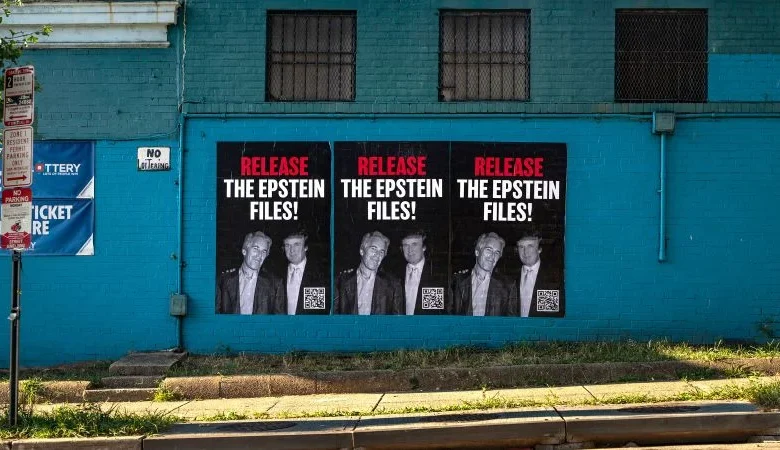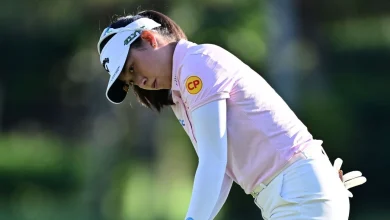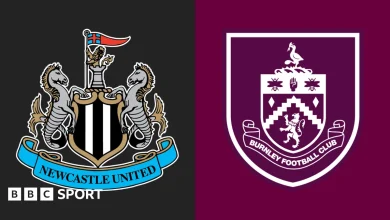3 takeaways from the new Epstein emails mentioning Trump

The federal government shutdown provided President Donald Trump a weekslong reprieve from major revelations about his relationship with Jeffrey Epstein.
But as Congress looks to reopen the government this week, it’s clear Trump’s Epstein problem hasn’t gone away.
The big news Wednesday is that House Oversight Committee Democrats have released at least three emails obtained from Epstein’s estate that mention Trump. Those emails come amid another huge release of Epstein documents that CNN is reviewing.
In one 2011 email, Epstein describes Trump as the “dog that hasn’t barked.” He writes that someone who Democrats identify as an Epstein victim (but whose name is redacted in the released email) “spent hours at my house with him,” apparently referring to Trump.
Republicans on the committee have since said the redacted victim who supposedly spent time with Trump is Virginia Giuffre, one of Epstein’s most prominent survivors, who died by suicide in April. (Giuffre never implicated Trump in any wrongdoing.)
And in a 2019 email, Epstein appears to reflect on Trump asking Epstein accomplice Ghislaine Maxwell to stop recruiting employees from Mar-a-Lago. In the email, Epstein says of Trump: “of course he knew about the girls as he asked ghislaine to stop.”
And in a 2015 email, Epstein writes to author Michael Wolff about how Trump might handle questions about his past relationship with Epstein.
(You can see the emails for yourself here.)
So what do these emails add to our understanding of the situation? Let’s break it down.
The emails reignite questions about what Trump knew and when
There have remained huge unanswered questions about what Trump knew and when about Epstein’s proclivities. That’s especially given Trump’s explanations have often proved evasive or false.
Trump has never been accused of wrongdoing in the Epstein case and has denied involvement in Epstein’s crimes. The White House on Wednesday argued Democrats had “selectively leaked” the emails to “create a fake narrative to smear President Trump.”
But these emails certainly deepen the intrigue about what Trump knew.
To recap what we already knew: Trump in 2002 referred to how Epstein liked women “on the younger side.” A Florida businessman said in a 2019 interview that he raised concerns with Trump about Epstein “going after younger girls” at a 1992 “calendar girl” event. Trump adviser Roger Stone in a 2016 book quoted Trump talking about how Epstein’s “swimming pool was full of beautiful young girls” and joking that it was nice of Epstein to “let the neighborhood kids use his pool.”
The president and his aides have also repeatedly said Trump distanced himself from Epstein because Epstein was a “creep” — but without elaborating on why, precisely, Trump viewed him as such.
Beyond that, Trump this summer acknowledged being aware of Maxwell recruiting employees, including Giuffre, at Mar-a-Lago — but he seemed to be quite reluctant to go into detail.
The question from there was whether Trump had an inkling about what Giuffre was being recruited for.
Trump said he didn’t “know really why” Maxwell was recruiting people. (Maxwell has denied recruiting people.) But Giuffre was a minor. To the extent Trump was aware of the particulars of the situation — and was aware of Epstein’s taste for young females — that would seem to raise red flags.
“It makes us ask if he was aware of Jeffrey Epstein and Ghislaine Maxwell’s criminal actions,” Giuffre’s two brothers and her sisters-in-law said in a statement this summer.
The 2019 Epstein email released by the committee says of Trump: “of course he knew about the girls as he asked ghislaine to stop.”
That doesn’t prove Trump knew what Maxwell and Epstein were recruiting the girls for. But it suggests that Trump was involved in telling Maxwell to knock it off and was seemingly familiar with the details of the situation.
The 2011 Epstein email that suggests Giuffre “spent hours” at his house with Trump also adds to the relevant facts here.
When Trump was acknowledging his awareness of Maxwell’s recruiting at Mar-a-Lago, he initially said he didn’t know if it was Giuffre who had been recruited. But then he quickly said that it was indeed her.
If Trump actually spent time with Giuffre, as Epstein’s email seems to say, it would not only raise questions about why. It would also make Trump’s handling of the situation appear even more bizarre.
And it’s clear from Giuffre’s own memoir that they knew each other and had had conversations about her working for his friends. “Trump couldn’t have been friendlier, telling me it was fantastic that I was there,” Giuffre writes about the time that her father took her to meet Trump in his office. She goes on to recount that Trump asked her if she liked children and explained that he had friends in houses “next to the resort” who needed babysitting for their kids.
The Trump Justice Department decided to interview Maxwell, a convicted sex offender, this summer while her appeals were ongoing. It did so despite her established credibility problems and motivations to say what the administration wanted.
(Trump at the time hadn’t ruled out the possibility of pardoning Maxwell. And around this time, we also learned Maxwell had been moved to a lower-security prison camp for which she didn’t appear eligible as a sex offender. The administration still hasn’t explained how this happened, months later.)
And sure enough, Maxwell said things that were helpful to the president. She basically said she had no knowledge of any Trump wrongdoing and downplayed his relationship with Epstein.
But the new emails call her claims into question.
Speaking of Trump’s and Epstein’s relationship, Maxwell said in her testimony, the transcript of which was released in August: “I don’t think they were close friends, or I certainly never witnessed the President in any of — I don’t recall ever seeing him in his house, for instance.”
But the newly released emails suggest Maxwell was aware of Trump being at Epstein’s house, at least as of 2011.
After Epstein in the email referenced someone spending “hours at my house” with Trump, Maxwell responds, “I have been thinking about that.”
Maxwell’s attorney didn’t immediately respond to a request for comment Wednesday.
This is not the first Maxwell claim from that interview that has been called into question.
Epstein and Maxwell seemed to think this information about Trump was significant
We surely need to learn more about the context of these emails. But one of the biggest takeaways is that they suggest Epstein and Maxwell seemed to feel this information about Trump was significant. There’s even a hint they suggested that information could be used as leverage.
The timelines are important here.
The 2011 email came as news was blowing up about Epstein’s ties to Prince Andrew, as he was then known. (He was recently stripped of his noble title.) As CNN has reported, around this time Epstein seemed to be going into legal attack mode.
Prince Andrew’s most prominent accuser was Giuffre.
It was in this context that Epstein and Maxwell conversed about Trump having spent time at Epstein’s house with someone who, according to Republicans, is identified in the email as Giuffre.
And notably, Epstein described Trump as the “dog that hasn’t barked.” This is an expression that comes from Sherlock Holmes mysteries; it basically means the absence of an expected event.
Which leads to the obvious question: Why might Epstein and Maxwell have expected news about Trump to have come out?
The timeline of the 2019 email is also relevant. That’s because it came during Trump’s first term as his administration was weighing significant action vis-à-vis Epstein.
The Miami Herald had in late 2018 run a major exposé on the sweetheart deal Epstein received from US Attorney Alexander Acosta, who later became Trump’s labor secretary. By early 2019, a major question was whether the Justice Department would probe that deal.
The DOJ’s inspector general said on January 30 of that year that he didn’t have the power to examine the situation. But by February 6 the DOJ’s Office of Professional Responsibility signaled that it had opened an investigation.
CNN reported at the time that multiple authorities were reviewing allegations about Epstein and minors as of early that year.
It was in this context, on January 31, that Epstein emailed Wolff about Trump “of course” being aware of Maxwell’s recruitment at Mar-a-Lago.
The newly released emails also include a 2015 Epstein exchange with Wolff in which the two of them strategize about how then-candidate Trump should handle questions about his ties to Epstein. Wolff said he had heard CNN was going to ask Trump about it at the debate, either on air or after. (There is no mention of Epstein in the transcript of the debate.)
In that email, Wolff suggests the best course would be to “let him hang himself” by denying being on Epstein’s plane or his house.





